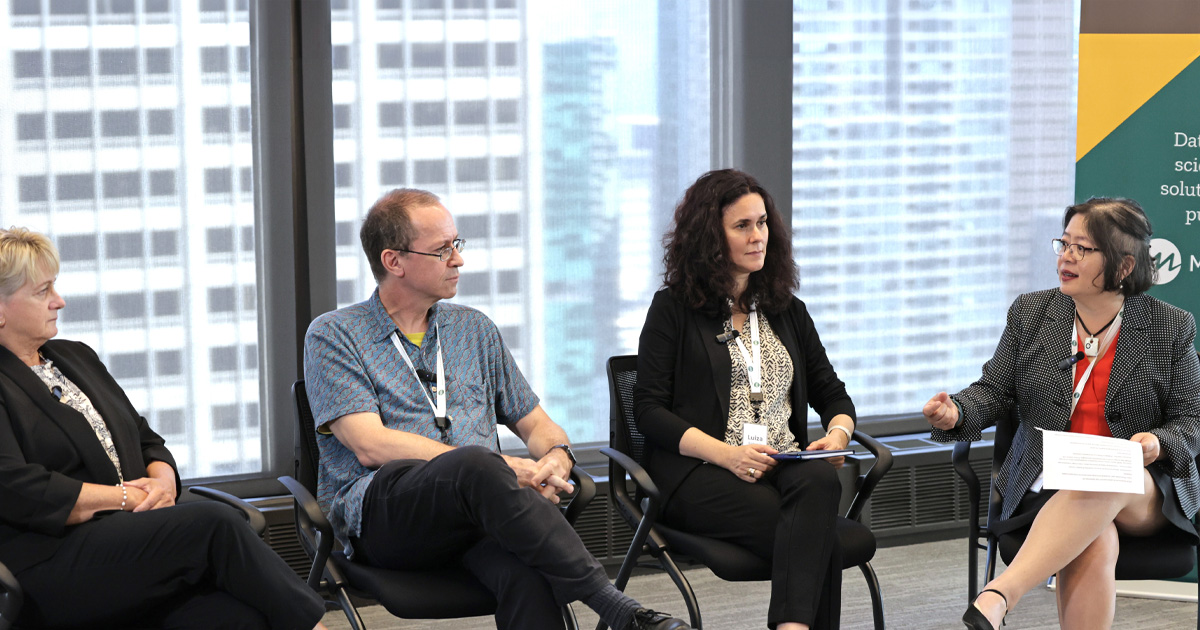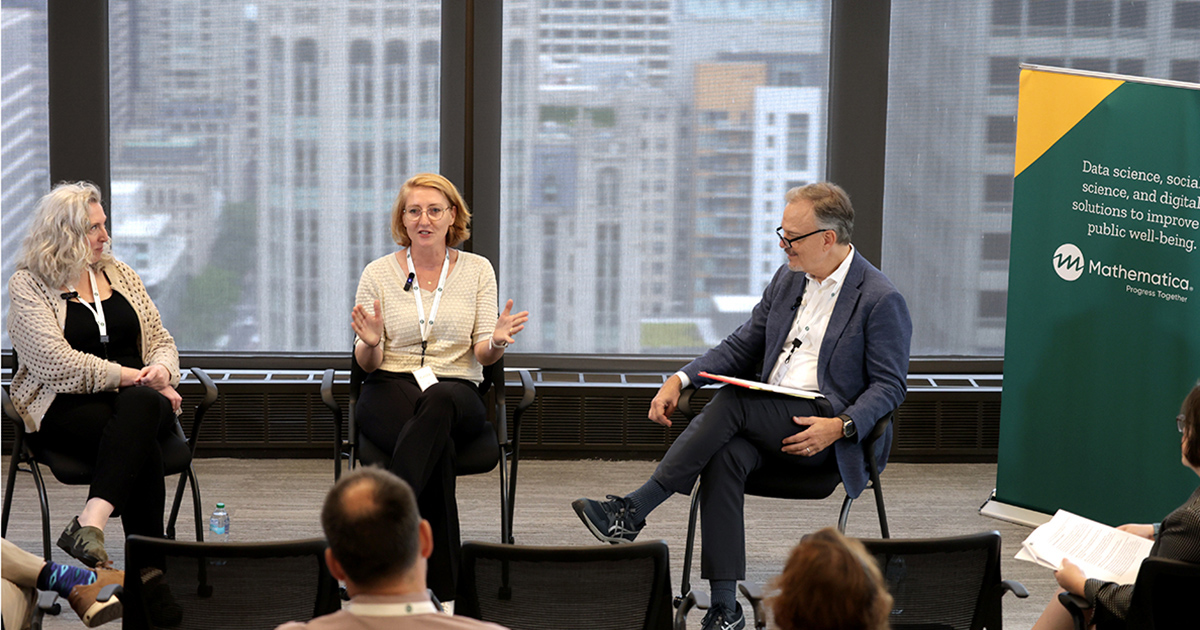When the International Population Data Linkage Conference came to Chicago this year, it was the first time the United States hosted the event. Following the conference, Mathematica’s team convened experts from government, academia, and the private sector in our downtown Chicago office for a series of conversations on important issues in data linkage.
A previous post highlighted a conversation on how data linkages can best inform policy. The following conversation focused on how technology can help address data linkage challenges. It was moderated by Ngan MacDonald, who leads Mathematica’s Health Data Innovation Lab, and featured Luiza Antonie of the School of Computer Science at the University of Guelph (Canada), Peter Christen of Australian National University, and Chris Cox of NORC at the University of Chicago.
Ngan opens the panel by highlighting the opportunity for technology to help to bridge gaps in data infrastructure.
Luiza emphasizes that child development and education outcomes can be improved by increasing the use of data.
Peter addresses potential emerging technologies and the speed at which they are developing. We need to ensure technologies are used ethically.
Ngan and Luiza take a deeper dive on AI and its relationship to data linkage moving forward.
Chris expresses hope that technologies such as AI will not just link data but be useful in assessing the quality of the resulting linkages.
Ngan and Chris discuss the challenges of protecting privacy while collecting the granular data needed to achieve meaningful linked data. Chris emphasizes the importance of providing information on the data being linked to all parties involved, including providers and users.
Ngan concludes the panel by emphasizing the need to come together to build trust among the many people with a role to play in how data is linked.
As technology continues to accelerate the pace of data linkage, more work is needed to improve global data infrastructure and create a nexus between government and industry.




